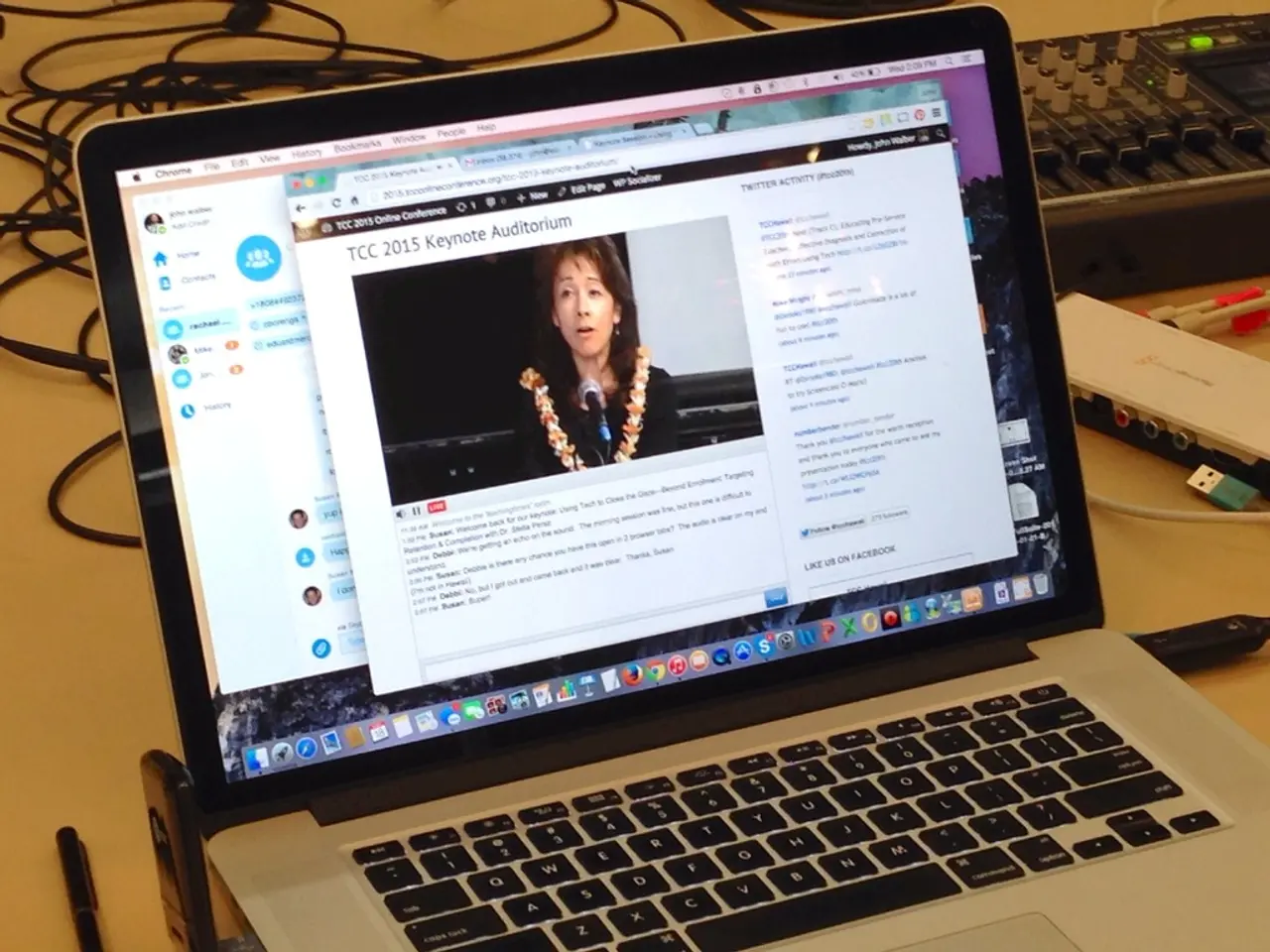Airbnb to Obey EU Requirements, Altering Terms and Boosting Price Clarity
In a significant move towards ensuring consumer safety and regulatory compliance, Airbnb has agreed to implement a series of changes to its short-term rental platform across Europe. The commitments, made in response to demands from EU consumer authorities, are set to be implemented by the end of 2025.
**Price Transparency and Verification of Offerings**
Under the 2024/1028 EU law on short-term rentals, Airbnb is required to ensure that all rental offerings are registered with local authorities before they can be posted on its platform. This includes verifying registration numbers and conducting random audits to guarantee compliance with local regulations. This measure aims to protect tourists from fraud and maintain a balanced tourism ecosystem.
**Host Identification and License Verification**
The Spanish Consumer Rights Ministry has flagged nearly 66,000 Airbnb listings for not displaying valid license numbers or for misrepresenting whether the owner was an individual or a company. In response, Airbnb has been mandated to remove illegal or unregistered listings immediately, including some 5,800 properties blocked by court order. Spanish courts have upheld these orders, emphasizing the need for hosts to provide verifiable identification and valid registration with authorities.
**Legal Remedies for Consumers**
The EU and Spanish authorities are enforcing regulations to protect consumers by ensuring that only legally compliant properties are listed. This regulatory approach comes alongside broader consumer protection ambitions, including guaranteeing transparent information about the rental offering and its provider so that consumers know the legitimacy and safety of their accommodation choices.
**Contract Termination and Platform Responsibility**
While Airbnb has argued that it is a neutral platform and that responsibility for regulatory compliance lies with individual hosts, courts and consumer authorities have held Airbnb accountable for enforcing compliance on the platform. Spain's Consumer Affairs Ministry has ordered Airbnb to delist illegal listings and has rejected appeals against such injunctions. This shows a shift toward requiring platforms to actively manage listings and contract compliance, including termination of non-compliant contracts.
In summary, Airbnb's commitments encompass:
- Ensuring all listings are verified and registered with local authorities before posting. - Removing unlicensed or misrepresented listings, as demanded by government and court orders. - Enhancing price transparency and host identification to safeguard consumers. - Accepting responsibility for enforcing legal compliance on its platform, including contract termination where necessary to comply with consumer rights and housing regulations.
These measures represent Airbnb's obligation to align with stringent EU consumer protection and housing laws aimed at balancing tourism growth with community welfare and consumer safety.
In addition to these changes, Airbnb has also agreed to provide compensation when a contract is terminated or content is removed, offer consumers the right to appeal, and clearly identify whether an offer is made by a private host or by a professional. Furthermore, Airbnb will inform consumers when the company decides to terminate a contract or remove content, and when it is not possible to calculate the final price in advance, Airbnb will inform consumers that additional fees might apply.
These commitments come at a time when Airbnb is also facing increased scrutiny in other parts of the world, such as California and New York, where the minimum wage is gradually being increased to $15 per hour. Consumers in these regions will also be made aware that they can use all legal remedies available, including the right to sue a host in case of personal harm or other damages.
In a recent victory for Airbnb, the company has successfully defended a lawsuit filed by Apartment Investment & Management Co. (Aimco) over allegations of enabling unauthorized sublets. This ruling underscores the importance of platforms like Airbnb in facilitating short-term rentals while adhering to local regulations and consumer protection laws.
[1] European Commission. (2021). Short-term rentals in the EU: A guide to the new rules. Available at: https://ec.europa.eu/info/publications/short-term-rentals-eu-guide-new-rules_en
[2] Spanish Consumer Rights Ministry. (2021). Airbnb to remove illegal and unregistered listings in Spain. Available at: https://www.mconsumidor.gob.es/es/noticias/noticias/2021/02/01/airbnb-eliminara-listados-ilegales-y-desregistrados-en-espana
[3] European Consumer Centre Network. (2021). Airbnb and consumer protection in the EU. Available at: https://ecc-net.eu/airbnb-and-consumer-protection-in-the-eu/
[4] European Commission. (2021). Airbnb agrees to comply with EU consumer authorities' demands. Available at: https://ec.europa.eu/commission/presscorner/detail/en/IP_21_5283
- Airbnb, recognizing the importance of technology in the modern business landscape, has agreed to implement advanced technologies to verify the registration of all rental offerings and ensure price transparency on its platform, in line with the EU law on short-term rentals.
- In response to demands from EU consumer authorities and in an effort to maintain its reputation in the finance sector, Airbnb has committed to removing illegal or unregistered listings, safeguarding consumers by enforcing legal compliance and providing fair compensation when contracts are terminated or content removed.




